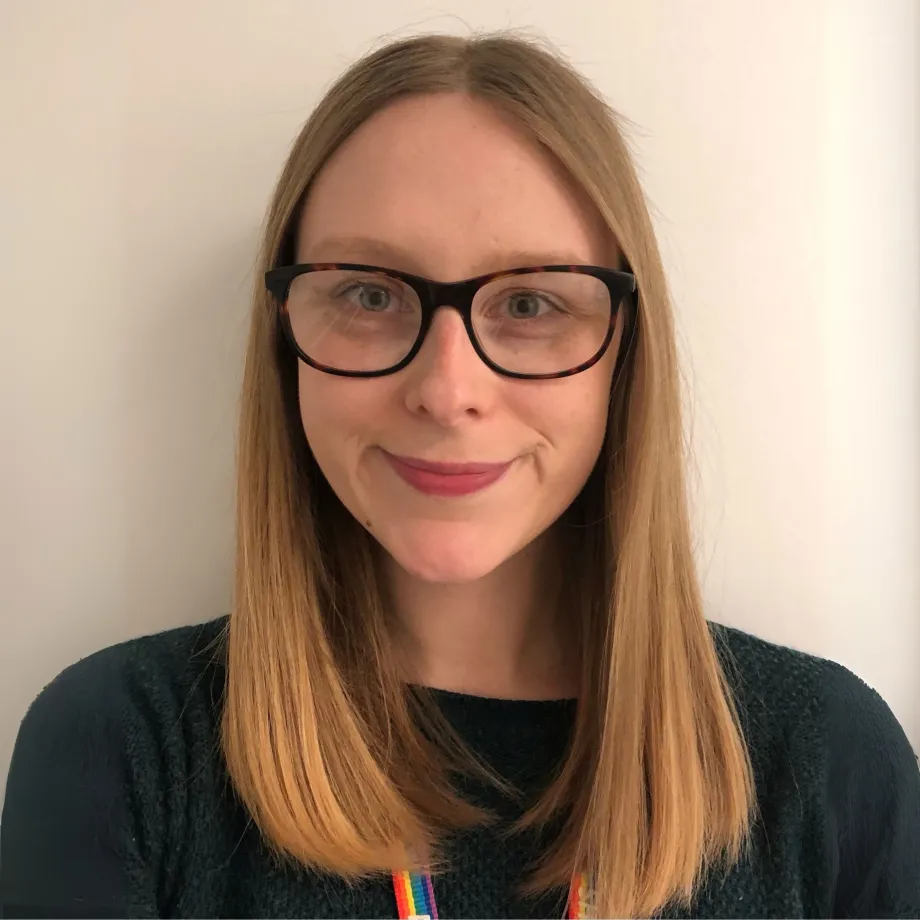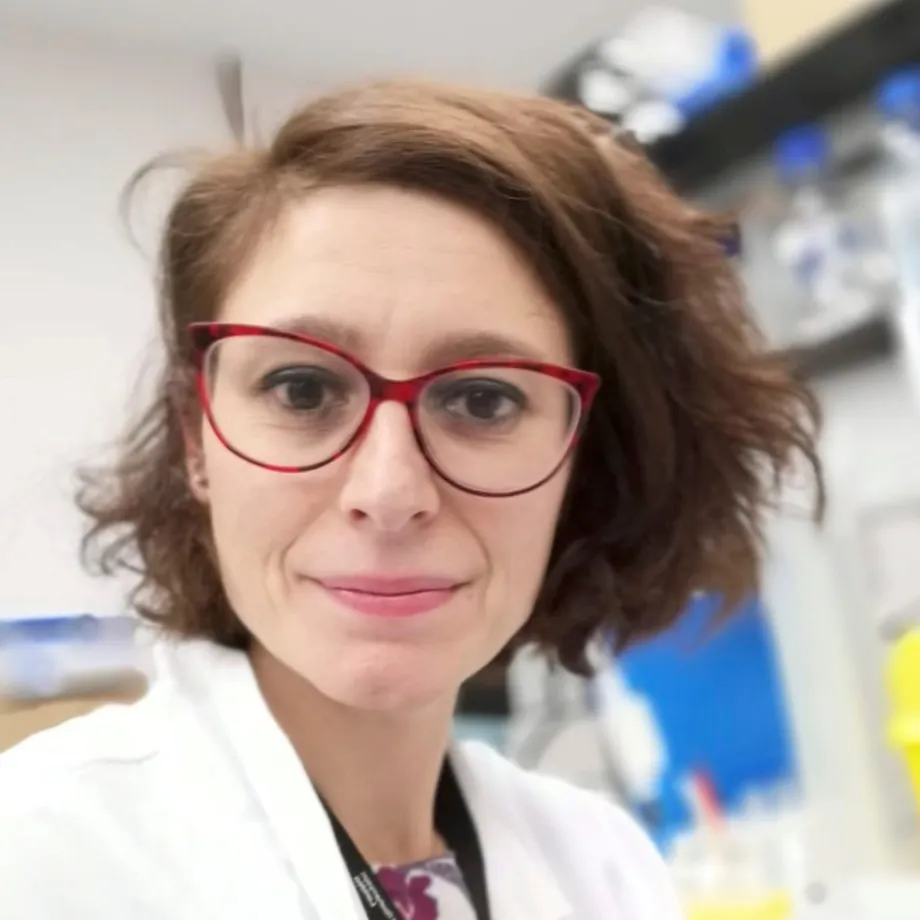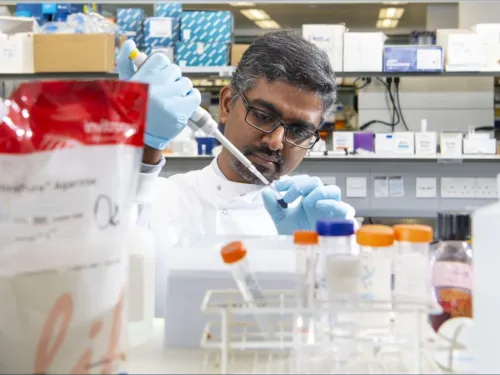CCLG works with the LPT to fund research, using our expertise to help select the most impactful research projects and administer their extensive research programme. With the latest round of projects, the LPT has funded over £27 million of research through the CCLG Research Funding Network.
Little Princess Trust has funded over £27 million of research through the CCLG Research Funding Network
The project will test B-cell acute lymphoblastic leukaemia (B-ALL) patient blood samples to improve CAR T-cell therapy (CAR-T)
The project could form the basis of a new, kinder treatment that can give children a better chance for their future
Over four in 10 children who are diagnosed with cancer have a type of blood cancer, usually either leukaemia or lymphoma. One of the LPT’s new projects hopes to understand how lymphoma cells can resist treatment, while the remaining three investigate leukaemia, the most common type of cancer in children.

Dr Shelby Barnett
Dr Shelby Barnett’s Newcastle University-based project is her first funding from the LPT. Working with consultant Dr Geoff Shenton, her research will test B-cell acute lymphoblastic leukaemia (B-ALL) patient blood samples to improve CAR T-cell therapy (CAR-T). CAR-T is an exciting treatment that helps a patient’s immune system fight cancer, but it requires careful preparation with medications like fludarabine to ensure its effectiveness.
She said:
This project will focus on making sure children and young adults with B-ALL undergoing CAR-T receive the right dose of fludarabine. Something as simple as getting the right levels of this drug, used in the preparation for this cutting-edge treatment, will hopefully mean that patients get the best possible outcome from their therapy.
Blood samples will be monitored in real time so that the researchers can flag patients who need a different dose of fludarabine. Shelby believes this could make CAR T-cell therapy more effective for patients.

Dr Maria Teresa Esposito
Also funded by the LPT for the first time, Dr Maria Teresa Esposito at the University of Surrey will investigate how a gene called SET affects acute myeloid leukaemia (AML) growth and survival. Her lab has already shown that when the SET gene is ‘turned off’ in cancer cells, it can stop the cancer’s growth. However, they need to understand why before this exciting finding can be translated into new treatments.
She said:
We are very excited that our research could provide new insights into the biology of childhood AML. We hope that this research will lead to the design and development of new treatment strategies that will be less toxic to the patients.
Once the researchers can show why SET is essential for the survival of some AML cells, they plan to test treatments that could combat SET’s effects. This could form the basis of a new, kinder treatment that can give children a better chance for their future.
Maria Teresa said that she loved the LPT’s mission to bring ‘hair and hope’ to children affected by cancer, adding: “I feel absolutely grateful to be the recipient of such prestigious and generous funding, which came in a very critical moment of my career. I am honoured to become the LPT’s ally in the fight against childhood cancer.”
Wendy Tarplee-Morris, Director of Impact at the LPT, said:
We are proud to be supporting both new and familiar researchers in making a difference for children with cancer. Research is a vital part of our ‘hair and hope’ mission – we want to ensure that every child with cancer has hope for a happy future. Projects like these, which aim to improve blood cancer treatment, are essential for that vision.

